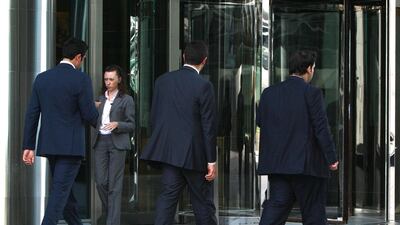My great aunt, who is now in her eighties, lived her childhood and early teen years during a time when life was harsh for people in the region.
Compare that with how my generation is living life. We live in a world of abundance – one that my great aunt's younger self couldn’t dream existed and one where, in her opinion, I should be working fewer hours. Yet she is dumbfounded by the fact that we seem to work longer and harder as people have their basic needs such as food, water and shelter covered.
My aunt’s observations are correct. People are working long hours, more so over the past year thanks to working remotely due to the Covid-19 restrictions. Indeed, Buffer's 2021 State of Remote Work report found that 27 per cent of remote workers feel they can’t unplug from work, while 45 per cent say they are working more.
But why do we work longer? In his book, Work: A Deep History, from the Stone Age to the Age of Robots, anthropologist James Suzman, who spent 30 years living and studying Ju/’hoansi people of South Africa, discusses how they spent about 15 hours a week meeting their basic needs. But ironically, as societies flourished and became more technologically advanced, our desires and wants evolved. We created new needs and wants and we strive towards them.
There have been numerous calls by experts to reduce the working week to four days instead of five. This pressure has increased after Iceland recently said its four-day working week trials proved to be successful, with employee productivity either remaining the same or improving, according to the researchers.
In fact, Morten Hansen, a management professor at the University of California, Berkley and author of Great at Work, believes the way we work is “broken”. Mr Hansen surveyed 5,000 managers and employers, and concluded that those who perform best follow smart strategies that help them work fewer hours, yet achieve more. Mr Hansen also found that top performers are happier outside of work because they are putting in fewer hours.
With numerous organisations such as Dropbox, American Express and Amazon adopting remote work for the long term, I believe employers should support their employees to work more efficiently instead of working more.
For starters, this can be implemented by following simple rules, such as instructing their teams not to organise late team meetings online, even if everyone is working from home, or to adopt France’s Right to Disconnect, a labour law in which employees do not have to take phone calls or read work-related emails after hours.
Employees can also take matters into their own hands instead of waiting for laws to be implemented. Whether you are a business owner, freelancer or even an employee, you can work more efficiently by limiting meetings to a certain amount of time to prevent them from dragging on longer than they should.
It's no coincidence that online meeting provider Fuze found in a study that ineffective meetings waste an estimated $37 billion a year in the United States.
It’s also important to confirm what is expected from meetings and the tasks assigned to you beforehand. For instance, ask your management if a task requires a presentation or if you can communicate the results verbally. Knowing what your team’s expectation is for each task will help you avoid wasting time.
I find that that reusing material such as having pre-prepared email templates and presentations for certain tasks helps you to save time.
Create dedicated times for certain tasks, just as we did for certain lessons at school. Last, but not least, focus on quality and details without wasting time. For instance, don’t waste time producing a 20-page report when a 10-page report can suffice with better quality.
We have a saying in Arabic that goes along the lines of, "Life ends, but work never does". While work is a crucial component of our lives, so is our personal time. Learning how to work efficiently and supporting our employees to achieve that helps us to save time, money and live a balanced life.
Manar Al Hinai is an award-winning Emirati journalist and entrepreneur, who manages her marketing and communications company in Abu Dhabi.

